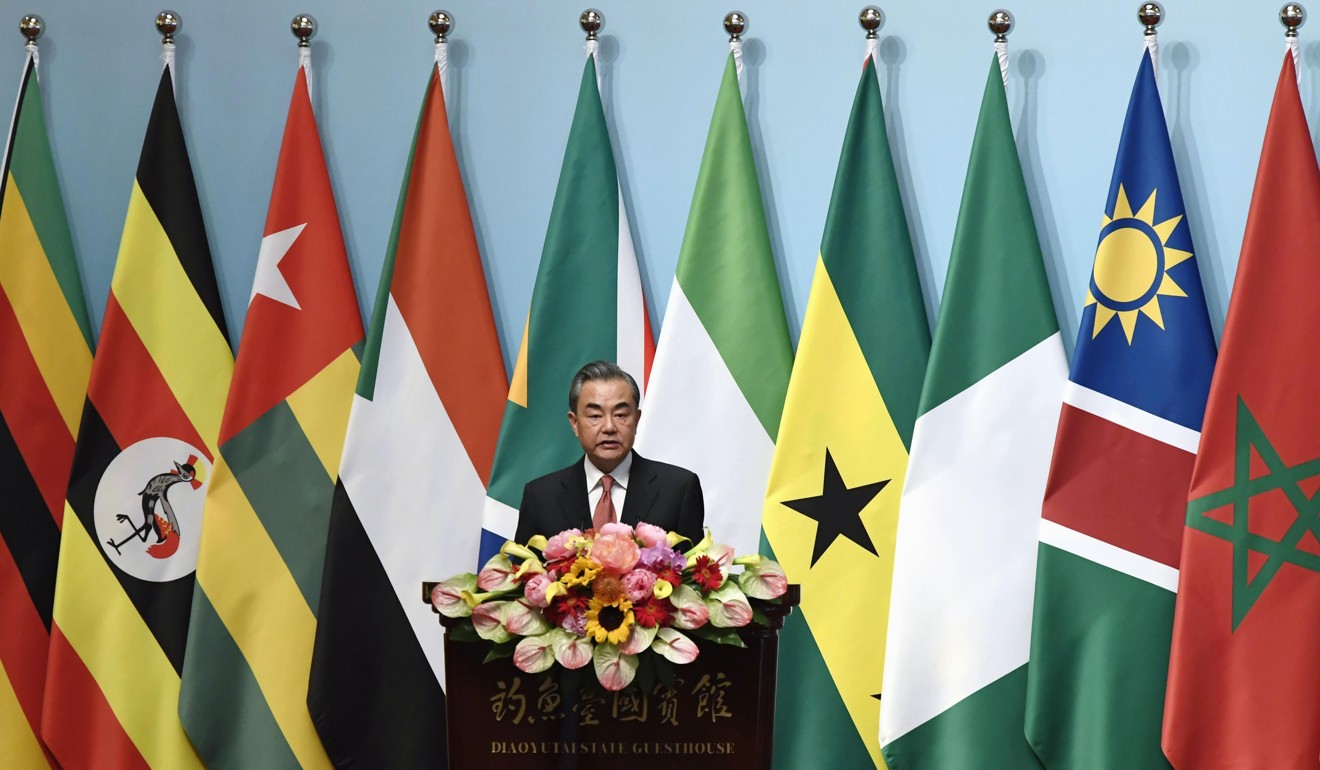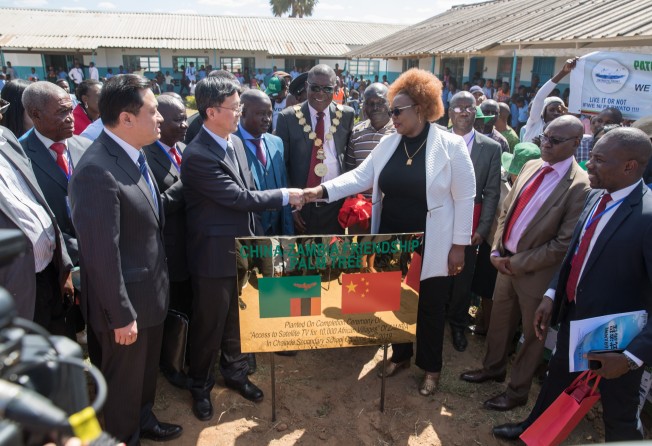
China tries to focus on sustainable projects as it seeks to dismiss fears of African debt trap
- Foreign minister Wang Yi tells summit in Beijing that fears about investments in continent are ‘groundless’
- Chinese government tries to address concerns borrows will be burdened by unsustainable debt and say that want to heighten role of private sector

China indicated on Tuesday it will put a greater emphasis on sustainability and seek wider private sector participation for projects it funds in Africa.
The comments by Foreign Minister Wang Yi at the end of a two-day conference with African leaders also repeated Beijing’s frequent denials that it practises “debt trap” diplomacy and tried to emphasise the message that its approach to Africa differs to that of Western powers.
Wang stressed that China does not pursue selfish goals in dealing with Africa, saying: “Some outside forces have tried to vilify and undermine China-Africa cooperation by cooking up [ accusations of] so-called neocolonialism and debt traps, which are totally groundless and are not accepted by African people.”
The charge of debt trap diplomacy is frequently made by Western countries, which have accused Beijing of giving developing countries loans that they will struggle to repay.

The summit in Beijing follows on from one held last September, where President Xi Jinping promised to spend US$60 billion in Africa – a sum that matches the amount pledged at a previous gathering in South Africa in 2015.
The even was attended by representatives of all African countries except the tiny, landlocked kingdom of eSwatini, formerly known as Swaziland, which remains allied to Taiwan.
Speaking at the forum on Tuesday, Wang said joint projects in Africa must be sustainable – a message reinforced by commerce vice-minister Qian Keming, who said “we need to focus more on projects that can generate sufficient cash flow themselves” and set “clear thresholds in lending”.
“Secondly, we need to shift from reliance on the central governments to drawing in other sectors such as enterprises, think tanks, and financial institutions,” Qian said.
However, a report from the IMF published last year warned that the threat of a debt crisis was still hanging over many African countries, 40 per cent of which were already in debt distress or at high risk of one.
A study published the same year by the China-Africa Research Initiative at Johns Hopkins University in the US concluded that while Chinese loans were not a major factor in African debt distress, some of the most at-risk countries had borrowed heavily from Beijing.
The study, which looked at Chinese investments and loans from between 2000 and 2016, said high-risk borrowers included Djibouti, where Chinese financiers held 77 per cent of its total debts and Zambia, which owed at least US$6.4 billion to China.
Oumar Demba Ba, a diplomatic advisor to the president of Senegal, told the event it was important to “dispel prejudices and untrue comments about African debts and Chinese investment in Africa”.
“Some say that the Chinese people use tricks when they cooperate with Africa. This is not true. Look at the infrastructure and digital technology projects that Chinese people have offered to Africa,” he said
“Take a look at construction sites to see how African engineers have worked hand in hand with Chinese people.”
He also said cooperating with China would better balance the current international relations system, which is still based on the settlement established at the end of World War II.
“The world we live in today is different and we must [act] accordingly reflecting the change,” he added.